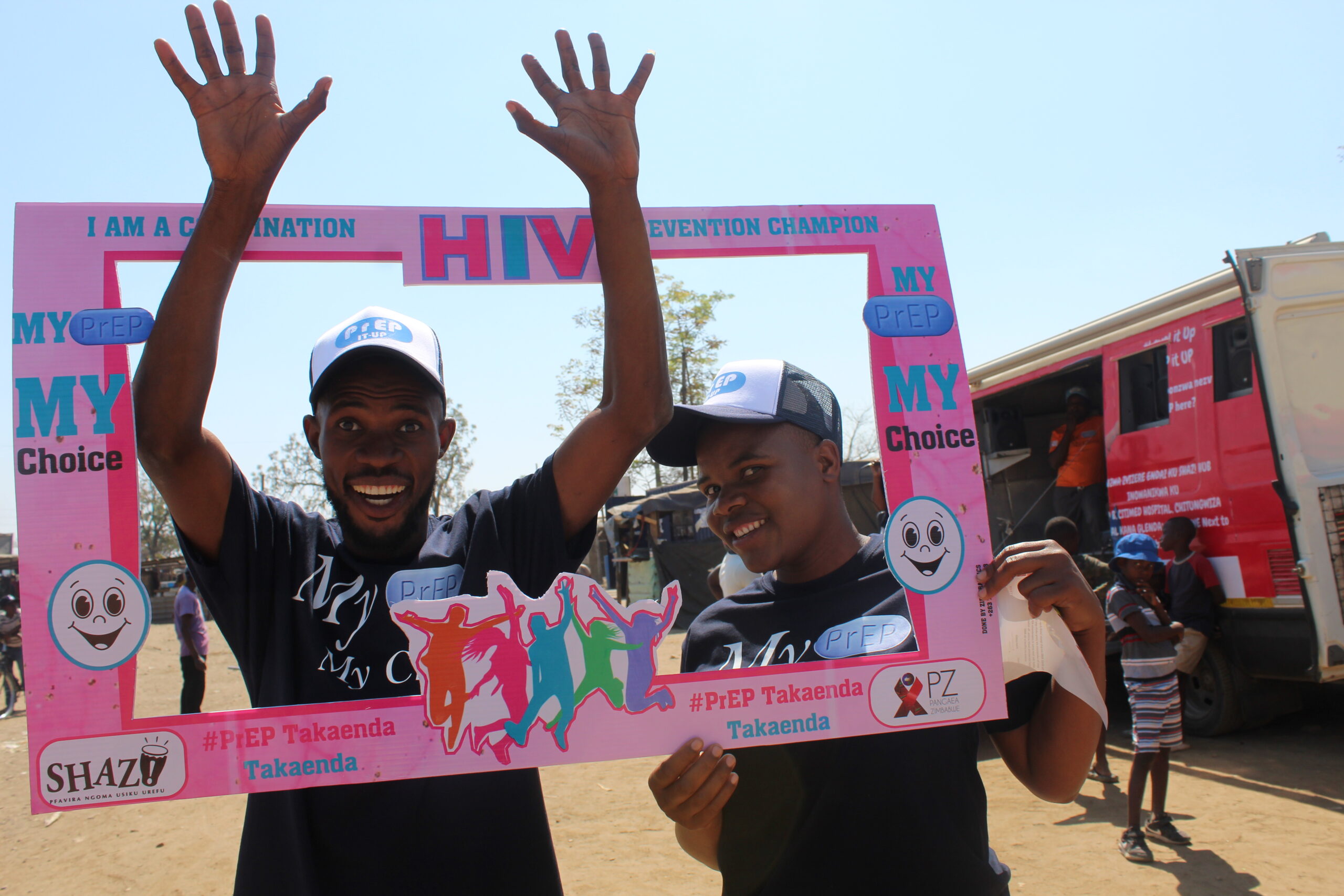
Research on Empowering Young Women in Zimbabwe to Overcome HIV
PZAT’s longest standing project in Zimbabwe is SHAZ! (Shaping the Health of Adolescents in Zimbabwe) – an HIV intervention and research project located in Chitungwiza, funded by the National Institutes of Health. SHAZ! works to empower adolescent women aged 16 to 19 living with HIV through a combination of HIV prevention, treatment, care, and support, life-skills education, and improved economic opportunities through vocational training and micro-grants.
PZAT’s longest standing project in Zimbabwe is SHAZ! (Shaping the Health of Adolescents in Zimbabwe) – an HIV intervention and research project located in Chitungwiza, funded by the National Institutes of Health. SHAZ! works to empower adolescent women aged 16 to 19 living with HIV through a combination of HIV prevention, treatment, care, and support, life-skills education, and improved economic opportunities through vocational training and micro-grants. This effort began in the beginning of 2000 (through partners that preceded PZAT), to identify prevention strategies for adolescent women. It expanded to increasing access to HIV services for young women living with HIV in 2009. Today, the SHAZ HUB runs as a drop in center for young people (16 to 24 years), focused on providing comprehensive sexual health, HIV and wrap-around services, including the provision and operations research for providing oral PrEP and new HIV prevention options for young people when they become available.
Treatment Optimisation
The TO initiative is a partnership between WHO, UNAIDS and Pangaea, funded by the Bill and Melinda Gates Foundation. On January 26th 2012, the Ministry of Health and Child Welfare convened a meeting with partners to consider how the global Treatment Optimization Initiative, can support national HIV treatment priorities, particularly antiretroviral therapy.
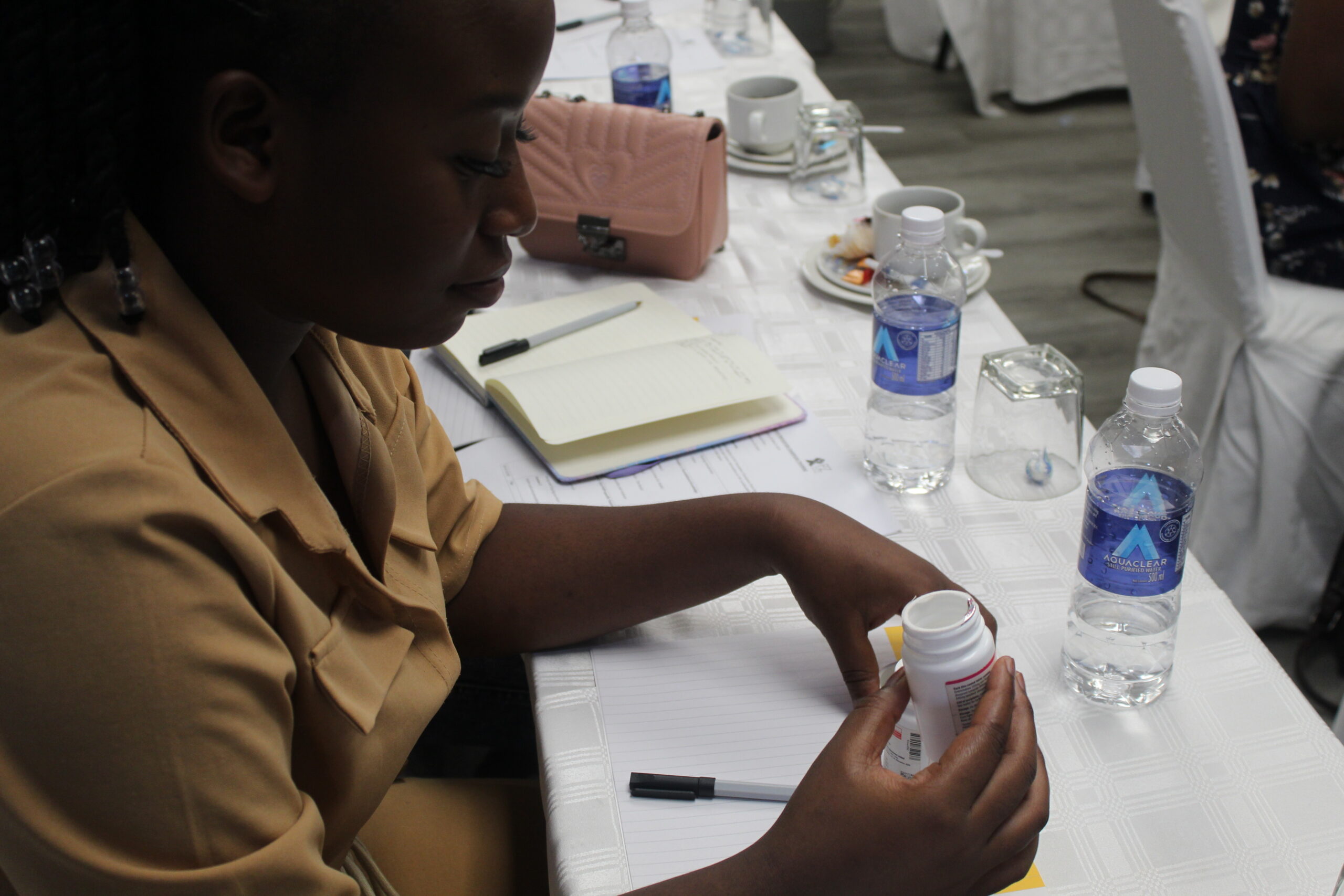
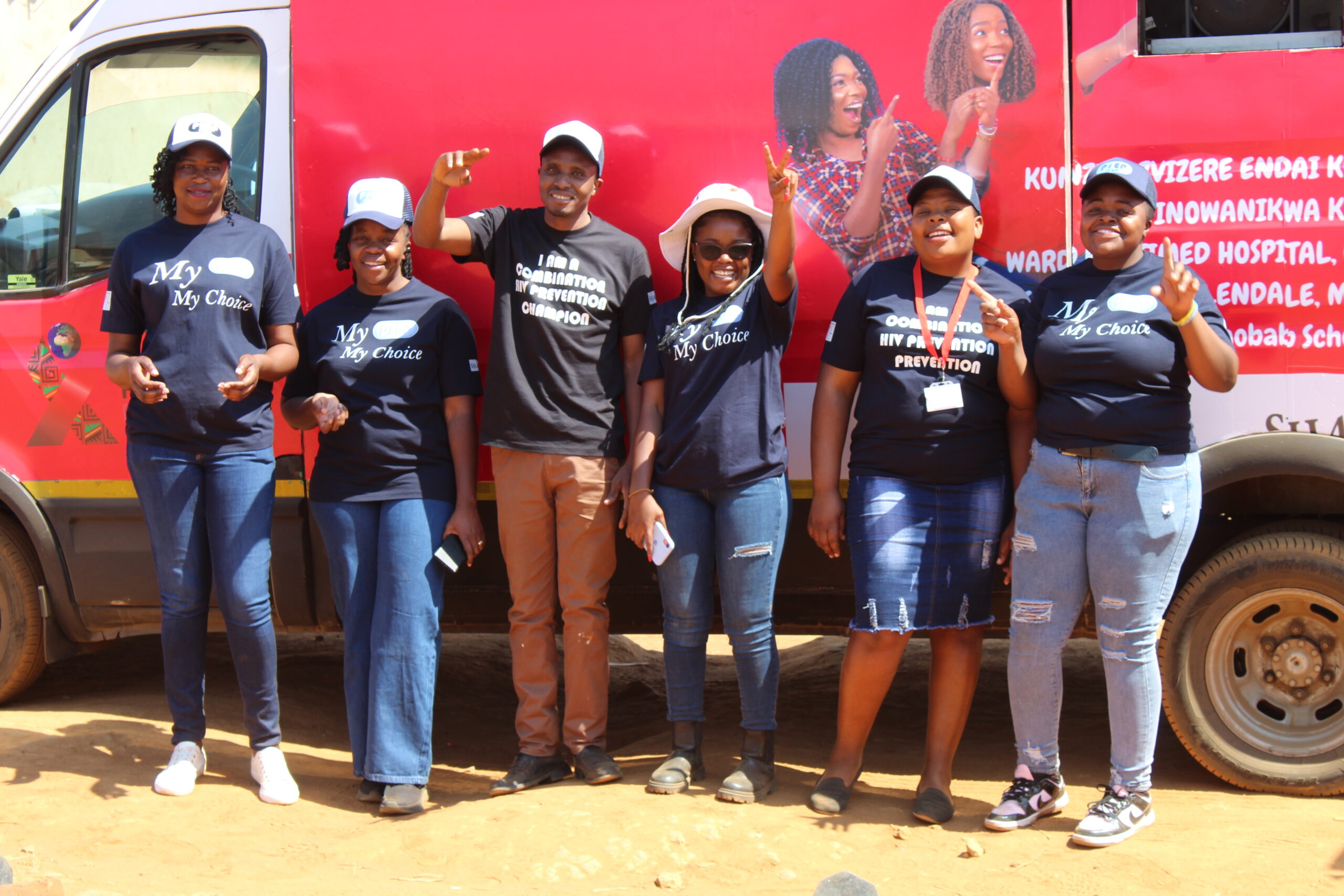
Secretariat Support for AIDS & TB and Laboratory Services Partnership Forums
As an outgrowth of these Treatment Optimisation meetings, Pangaea-Zimbabwe provided support to the Ministry of Health & Child Welfare to address these priorities, acting as a secretariat under the national ART Partnership Forum and Laboratory Partnership Forum from 2012 to 2016. This support consisted of Pangaea-Zimbabwe staff time to help convene meetings, draft meeting notes and follow-up with key stakeholders accountable for agreed-upon action items.
Wild4life Health Project
Through the Wild4Life Health project and the Ministry of health and Child Care (MOHCC), PZAT worked to strengthen facility and community primary care service delivery in the Hwange district’s 17 rural health centers. Strategies employed to strengthen integrated HIV prevention, care and treatment services including facility and community based strategies, index case testing and family centered approaches.
Through the Wild4Life Health project and the Ministry of health and Child Care (MOHCC), PZAT worked to strengthen facility and community primary care service delivery in the Hwange district’s 17 rural health centers. Strategies employed to strengthen integrated HIV prevention, care and treatment services including facility and community based strategies, index case testing and family centered approaches. Comprehensive clinical mentorship, mentorship and support for village health workers and other community based cadres and integrated outreaches ensured improved access to services and better outcomes for people living with HIV (PLHIV) and health outcomes for the population in general in the district. Services provided during outreaches at community level include HIV testing, enrollment into care for those diagnosed to be HIV positive, screening for TB and initiation of isoniazid preventive therapy, provision of Antenatal Care (ANC) and PMTCT services and nutrition assessment and supplementation. Between 2015 and 2017, overall HIV testing doubled (and more than tripled for children), increasing the total number of clients on ART by 38•4% with viral suppression rates ranging from 88-93% across different population groups. Furthermore, the number of TB suspects identified increased by 93•4%; and the proportion of pregnant women who made their first antenatal visit before 16 weeks gestation rose from 31•4% to 48%. Differentiated service delivery models were set up, with 30% of the adolescent and adult clients on ART access services through community ART refill groups.
PZAT improves access and outcomes through sustainable management models. Engaging health center committees and the district health executive through mentorship and building capacity on leadership and governance was core to the success in Hwange district.
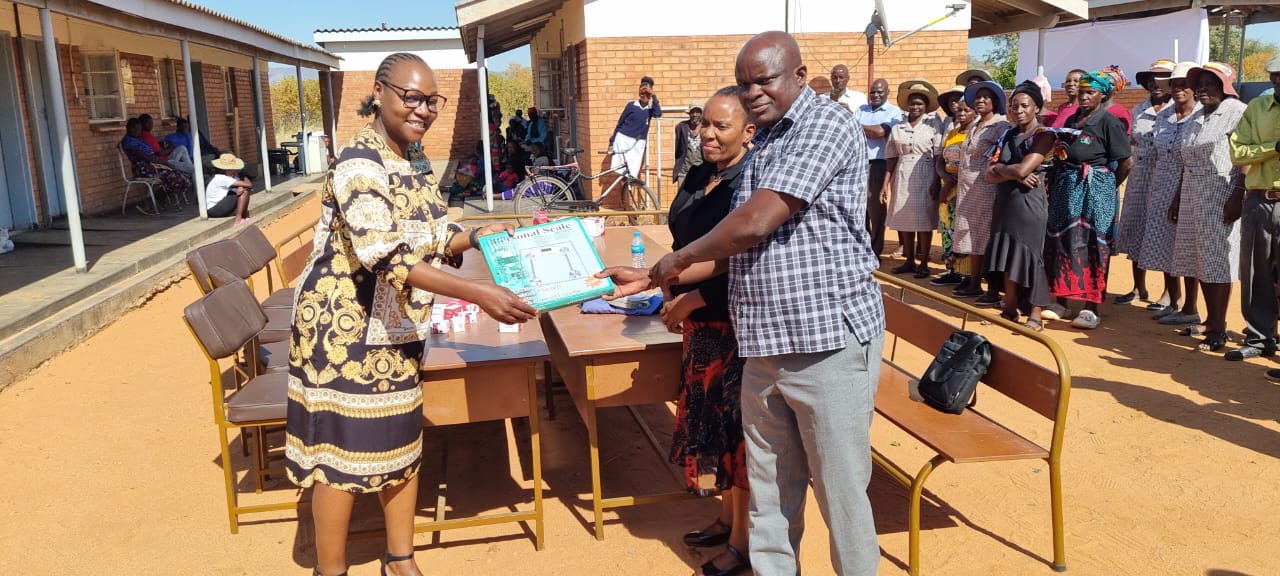
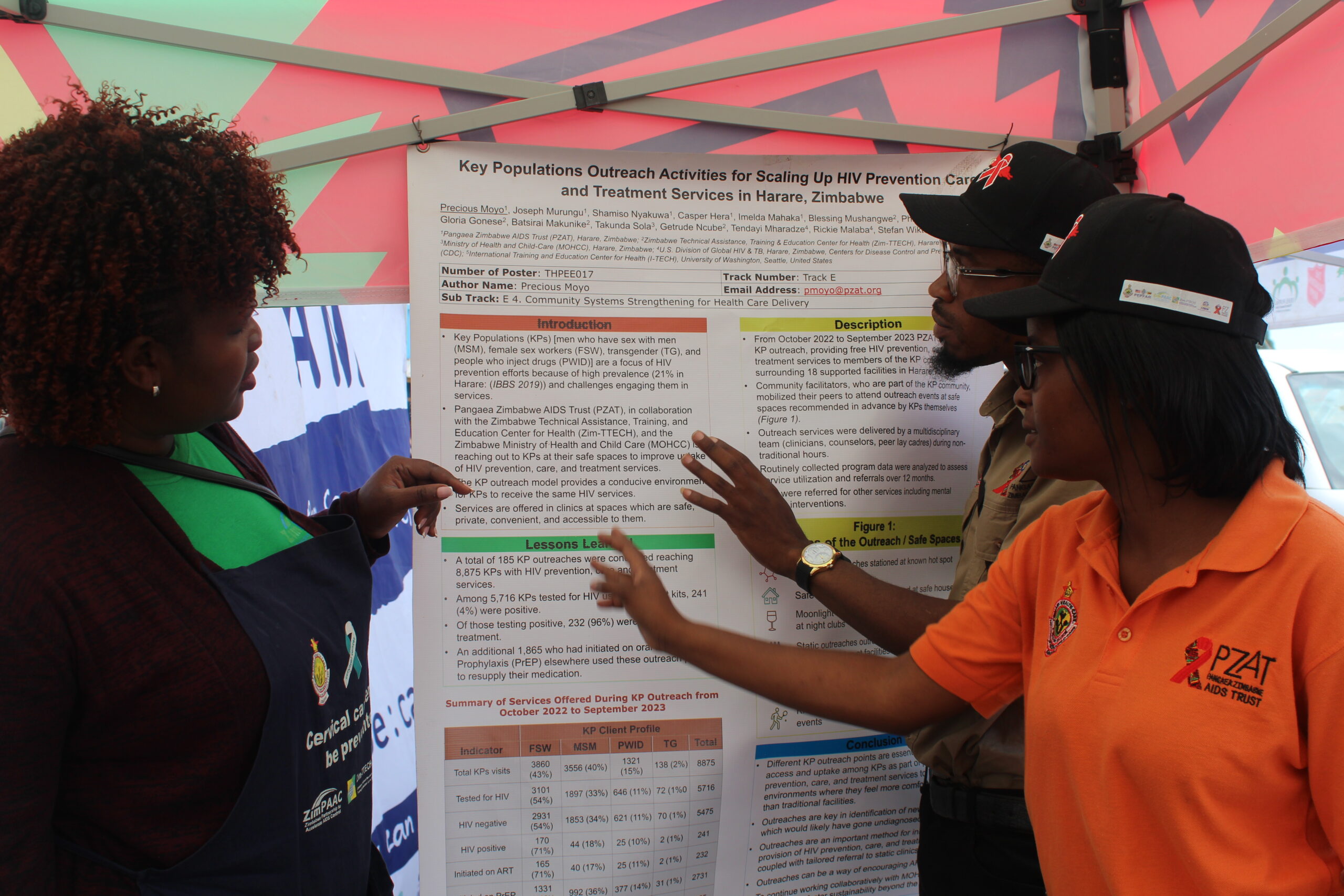
Program Evaluation of Zimbabwe’s HIV Integrated Training (HIT) and Mentoring Programme (in partnership with MOHCC and I-TECH)
PZAT served as the Monitoring &Evaluation partner within the I-TECH consortium (from 2013 through 2017) for evaluating the HIV care and treatment program in partnership with the Ministry of Health and Child Care (MOHCC), and for reporting on PEPFAR indicators. PZAT was responsible for designing and implementing evaluation tools, developing and managing large-scale data bases for analysing evaluation data, and in accessing and using Zimbabwe’s Health Management and Information System data to track facility performance related to the training and mentoring of health care workers
PZAT served as the Monitoring &Evaluation partner within the I-TECH consortium (from 2013 through 2017) for evaluating the HIV care and treatment program in partnership with the Ministry of Health and Child Care (MOHCC), and for reporting on PEPFAR indicators. PZAT was responsible for designing and implementing evaluation tools, developing and managing large-scale data bases for analysing evaluation data, and in accessing and using Zimbabwe’s Health Management and Information System data to track facility performance related to the training and mentoring of health care workers. Through these efforts, PZAT has developed staff capacity and partnerships in: data base design and management; use of program data to inform program roll-out and improvement; expertise in working with the national DHIS systems, data and MOHCC staff at national, provincial and district level; and in developing software for using hand-held tablets for field-based data collection. Furthermore, PZAT has built the infrastructure required to conduct and manage large data sets.
Leadership Capacity Initiative/CECHLA Consortium
PZAT served as the evaluation partner for the Coalition for Effective Community Health and HIV Response, Leadership and Accountability (CECHLA) consortium, which aims to improve access to quality HIV services among key populations (young people, sex workers and internally displaced people) through improved advocacy by local organizations targeting national and community level actors. In its role, PZAT developed and oversaw an M&E plan to guide consortium members and communities towards achieving outcomes in national policies, transparent funding allocations, reduced stigma and discrimination, and improved service delivery for people living with HIV, young people, sex workers and displaced populations.
PZAT served as the evaluation partner for the Coalition for Effective Community Health and HIV Response, Leadership and Accountability (CECHLA) consortium, which aims to improve access to quality HIV services among key populations (young people, sex workers and internally displaced people) through improved advocacy by local organizations targeting national and community level actors. In its role, PZAT developed and oversaw an M&E plan to guide consortium members and communities towards achieving outcomes in national policies, transparent funding allocations, reduced stigma and discrimination, and improved service delivery for people living with HIV, young people, sex workers and displaced populations.
PZAT has documented capacity to develop questionnaires and other data collection instruments that monitor on the ground/facility/community level challenges and can be used to enable evidence based advocacy. These include a questionnaire aimed at understanding and improving the impact of a results-based financing mechanism at the facility level and community score cards on quality of health centre services, health facility staff & community attitudes towards key populations as well as accessibility, availability and affordability of HIV services. This capacity to tie documentation and use of data collection tools to advocacy goals as well as to project management needs is a unique core strength of PZAT. The project ended in September 2017.


Best Practices: Identifying approaches to long term and effective engagement in HIV Health and support services
Between 2013 – 2016, Pangaea, in partnership with the Clinton Health Access Initiative (CHAI), with funding from the Bill and Melinda Gates Foundation, have developed and costed a series of single descriptive case studies documenting effective approaches to HIV service delivery in Sub-Saharan Africa. The goal of the project is to improve uptake of and retention in effective HIV service delivery to improve treatment and prevention outcomes.
Landscaping of HIV Service Delivery in Zimbabwe – best practices project
Pangaea undertook a landscaping review of how HIV care is provided in Zimbabwe, with an emphasis on differentiated care. Differentiated care is a client-centered approach that simplifies and adapts HIV services across the cascade of care to reflect the preferences and expectations of various groups of PLHIV while reducing unnecessary burdens on the health system . This project was a collaboration between Pangaea and the Zimbabwe Ministry of Health and Child Care, and was supported with funding from the Bill and Melinda Gates Foundation.
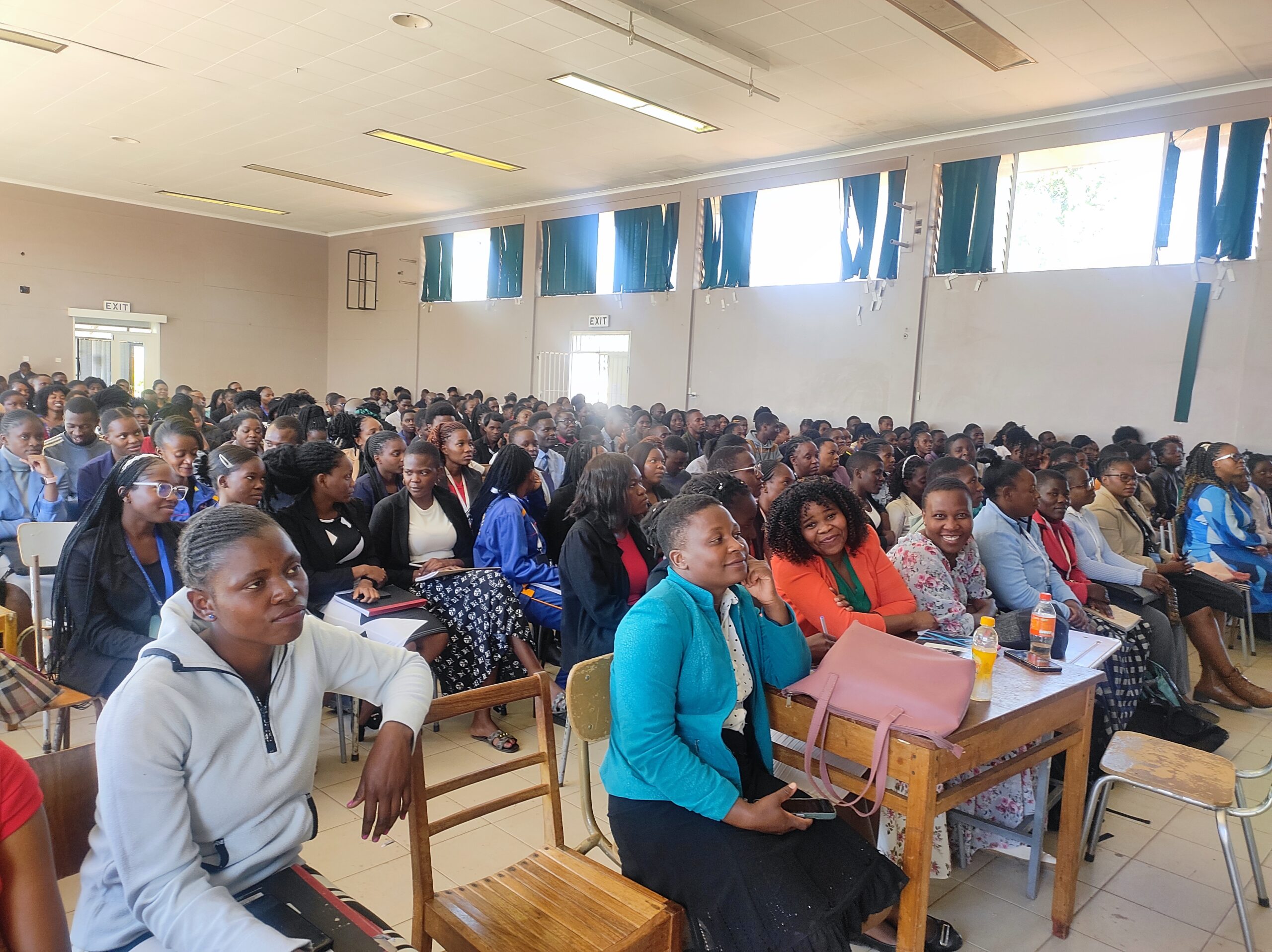

SCHIELD Study
Title: Subcutaneous Contraceptive and HIV Implant Engineered for Long-Acting Delivery (SCHIELD) in Multipurpose Prevention Technology (MPT): Evaluation of End-user Acceptability and Social Adoption Factors
Funded by: U.S. Agency for International Development (USAID)
Study Sponsor: RTI International
Study Sites: Setshaba Research Centre, Pangaea Zimbabwe AIDS Trust
Syphilis Self- Testing Study
Title: Syphilis self-testing to expand test uptake among men who have sex with men (MSM): A pilot study in Zimbabwe
Aims:
- To determine the effectiveness and cost-effectiveness of a community-based syphilis self-testing intervention (comprising a self-test kit with simplified pictorial guidance) to increase syphilis diagnosis and treatment among MSM (primary outcomes)
- To establish the effectiveness of the intervention to improve sexual behaviors, social outcomes, self-testing usability, and HIV test uptake (secondary outcome).
Design: Single Blind Prospective Pilot Study
Study Sites: selected communities around Zimbabwe

